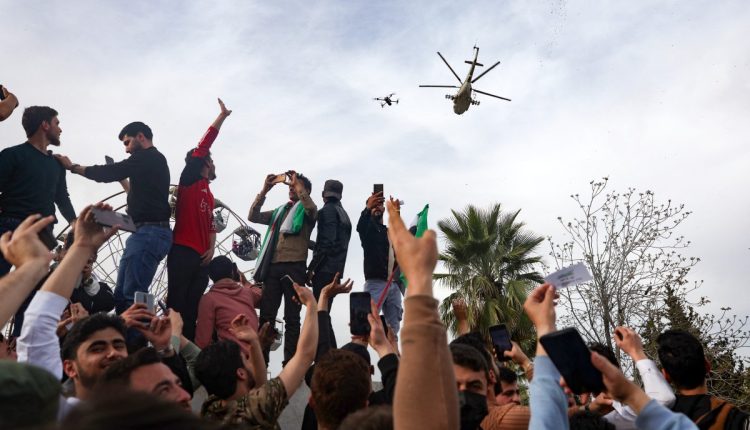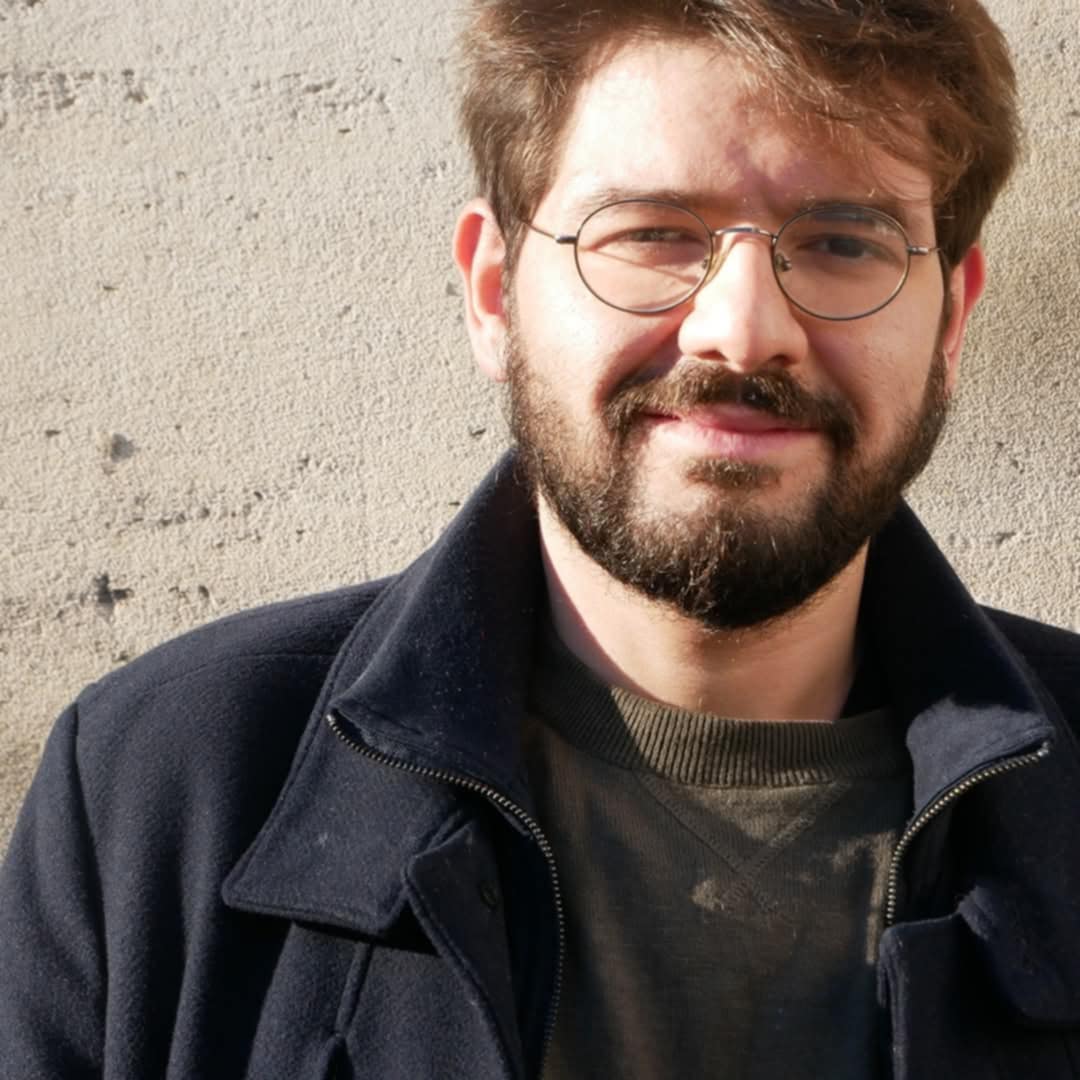The Syrian “School”: Is the Mediterranean Facing a Civilizational Catastrophe?
Mohammad Sami Al-Kayal
Syria today suffers from numerous afflictions, foremost among them the extreme poverty affecting the majority of Syrians, the collapse of basic services, lawlessness among militias, and their practices that amount to genocide. There are also violations of Syrian territory by neighboring countries, especially Israel, as well as conflicts arising from the post-Assad regime and the looming threat of renewed civil war. All of this may appear sufficient for any analysis of the situation in the country. There are no larger concerns that could engage those interested in Syrian affairs, and they are many.
Furthermore, there exists overt sectarian and ethnic incitement that has become routine, not just on social media—which is rife with hate speech—but also in street rallies, support marches, and even in mosques. It is hard to envision a future for life in a country that is deeply religiously and ethnically diverse when discussing identity-based violence becomes commonplace, viewed as a means to achieve justice, defend the homeland and the state, or even as part of religious belief. Additionally, there is the tragedy of hundreds of thousands of children who are dropping out of education or receiving a poor and extremist form of education, while growing up in an environment that normalizes all forms of violence and bloodshed. When we consider the presence of thousands of foreign jihadists on Syrian territory, the overall picture becomes exceedingly grim.
Nothing is more crucial than human life and living standards. These could be improved through a range of political, economic, and humanitarian measures, as long as the institutions of civilization still exist to a minimum degree. But what about the collapse of any social, moral, or religious deterrent against barbaric practices? This is fundamentally a cultural issue in the broad anthropological sense of the term ‘culture,’ and it perpetuates further killing, poverty, degradation, and long-term consequences.
Syria is a central country in its region and culturally influential to its neighbors, located on the shores of the Mediterranean at the convergence of three continents, each with a history and heritage that is both diverse and complexly intertwined. What is happening in Syria resonates powerfully across a vast region, from Egypt and Greece to Morocco and Spain, and even affects countries as far removed from the warm waters as Germany and the Netherlands. The deconstruction of this country’s civilization, not only due to the war but also as a result of authoritarian practices that foster sectarian hatred, jihadist ideologies, and barbaric actions, is likely to establish a ‘school’ at the heart of the region, one that may attract its own disciples, followers, and migrants.
In this sense, Syria today can be seen as a ‘civilizational catastrophe’ whose effects extend beyond its own borders, raising a pressing question: Why are neighboring countries, both close and distant, not paying attention to the dimensions of this catastrophe? Why do they engage with Syrian issues in the most superficial manner, as if they are managing a dispute that can be easily resolved, or rather, as if they are simply sweeping a scandal under the rug?
In an ideal world, the governance and social institutions of Syria would primarily concern the Syrians themselves. However, this has not been the reality for many years. The country has become a testing ground for states and quasi-states in managing conflicts and addressing radicalization. Consequently, many questions must be raised about the experience that Syrians are currently enduring—whether willingly or unwillingly, through their own actions or those of others: Do the proponents of shallow ‘politics’ and ‘realism’ truly understand the dimensions of the Syrian catastrophe?
Taming Radicalism
There seems to be a general tendency, both locally in Syria and internationally, to rely on a structural change in Islamist radicalism towards localism, pragmatism, and governance. This shift is seen as a way to create a partnership that can be engaged on various issues, from combating ISIS terrorism to matters of political transition and individual freedoms. Paradoxically, this perspective aligns more closely with the theories of Abu Musab al-Suri, one of the ‘intellectual’ architects of the current regime in Syria. He is a seasoned jihadist who has navigated through various organizations, including the Fighting Vanguard, the Armed Islamic Group in Algeria, and al-Qaeda.
However, his theorization of localism and institutionalization was not a renunciation of jihadism in favor of a conciliatory vision towards pluralism, equality, or any other values that might be necessary for Syria. Instead, it served to reinforce what he considered a universal cause: the establishment of God’s law in complex and troubled societies that are deeply mired in ignorance and surrounded by enemies. It’s worth noting that after years of practical experience in jihad, Abu Musab established a licensed ‘studies office’ in London.
Numerous studies and research articles, in English, Arabic, and other languages, have examined the ‘Idlib experience’ and the inclination of its leaders to ‘engage with local communities’ and pursue ‘pragmatism in defusing more radical tendencies.’ These works, written by Western scholars and their Syrian counterparts, reveal a significant enthusiasm for ‘understanding’ the transformations of the current ruling group in Damascus. Regardless of the precision of these studies and their potential propaganda value, they often resemble the kind of theorizing that has characterized Western nations’ ongoing gamble with jihadists since they were labeled ‘freedom fighters’ in Afghanistan, as former British Prime Minister Margaret Thatcher put it.
While jihadists may serve as effective tools to achieve certain objectives, they quickly become a grave threat at the very heart of Western societies, rather than being merely local or regional combatants and killers.
In any case, the primary danger is not that jihadists will abandon their localism or fail to manage and integrate their fellow foreign jihadists in Syria to curb their spread in the region and the world. The real danger lies within Syria itself and its communities. The institutionalization and ‘governance’ of jihadism locally—meaning the establishment of controls and frameworks that aim to make it more ‘familiar’ and deeply rooted—will have counterproductive outcomes: rapid explosions and collapses in a country that is profoundly complex and filled with conflicts and grudges. This process amounts to the dismantling of whatever remains of previous civilizational structures, including government bureaucracy, the education system, official religious institutions, the judiciary, and the media, replacing them with a hastily constructed jihadist framework that is explicitly sectarian.
In a province like Idlib, which has suffered extensively from the crimes of the Assad regime and has a discernible religious and ethnic majority, such a transition may face significant challenges. However, if this were to spread across all Syrian territory, it would lead to unimaginable horrors. At the forefront of these horrors is the unleashing of destructive tendencies among Syrian societies, where groups of children and adolescents may come to believe that humiliating, killing, and harming others, as well as seeking collective revenge and contributing to chaos and social decay, is the norm. This paints a terrifying picture of the world, one that is becoming increasingly ingrained day by day among a new generation of Syrians.
Today, many countries are urging the new rulers in Damascus to include broader segments of the Syrian population in the transitional process and are making this a condition for their support and the lifting of sanctions. However, this may all be futile, as it seems disconnected from the deeper structures of Syrian society and is more likely to settle for superficial measures that will not prevent Syria from experiencing further total civilizational collapse. A simple combination of ‘non-governmental organizations’ focused on ‘humanitarian responses’ and the ‘empowerment’ of specific groups, alongside political pressure on jihadist governance, will not be sufficient to address the depth of the crisis.
The Syrian Front
Dependence on the world may be a Syrian affliction from which a cure is essential. Even if contemporary Syria poses a global threat and serves as a ‘school’ for barbaric practices, as contradictory as that may sound, regional and global governments are not the most suited to recognize and resist that threat; rather, they may even be the most effective in shaping it.
It is more beneficial to view Syria within the context of the peoples of the region as an issue that transcends its own borders. This has always been the case and will continue to be so. Therefore, confronting the widespread de-urbanization being practiced by jihadists and their numerous allies, including some Syrian ‘civilian’ elites, is not merely a Syrian concern but one that affects anyone who wants to prevent the wider region from descending further into collapse. Their considerations should be more profound than the superficial ‘political’ and ‘pragmatic’ approaches to Syria.
In this regard, establishing what could be termed a ‘Syrian front’ against de-urbanization—meaning a coalition of forces and actors from various nationalities and orientations aimed at mitigating the disaster—is essential. The enjoyment of at least a minimal degree of political and social democracy in Syria serves everyone’s interests, while the opposite would lead to Syria pulling many others down into an abyss whose dimensions cannot currently be imagined.
Such a front must reclaim the actual meaning of politics as well as cultural work. What Syria needs is not merely the ‘governance’ demanded of its authorities—i.e., superficial institutionalization characterized by security-driven approaches to certain administrative, economic, and humanitarian issues—but genuine democracy, which encompasses the fundamentals of equality, participation, and recognition of pluralism. This is not a luxury. Without these components, the country will not achieve even the minimum level of stability.
Syria has been a magnet for jihadists in recent years. Perhaps it is time for it to become a focal point for democrats on both sides of the Mediterranean. ‘Cultural work’ is critically important here, as the country has become home to numerous myths, bloody hallucinations, ideological fraud, and relationships of submission and dependency. This reality has created both material and symbolic frameworks that must be dismantled.
The question remains: who are the democrats? Sometimes, matters can only be defined by their opposites. If “governance,” as a substitute for social democracy and genuine political engagement, has become a common refrain among jihadists, professional NGO activists, and even supporters of dictatorships (with Bashar al-Assad being one of the first to discuss governance in Arabic while dismissing democracy as a non-priority), then the true democrats are those adversely affected by these aforementioned groups, who are aware of the consequences of this damage on the survival of their communities and their very lives.
Certainly, establishing such a front may be challenging and extremely difficult, yet it represents the most realistic goal amidst the current realities of uncivilization and its champions, which render life in the region akin to a surreal nightmare.




Comments are closed.